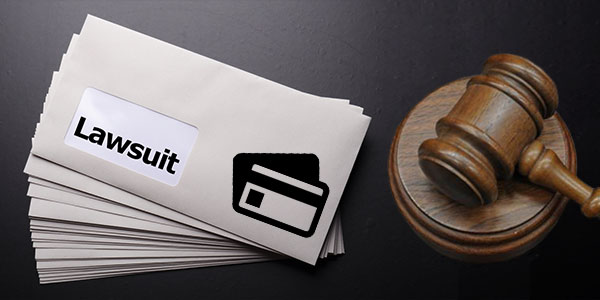The holidays are not days of happiness for everyone out there. For many who don’t have a decent livelihood, Christmas is just another day.
During these days, many people are forced to max out their credit cards to live up to the holiday spirit and cope with the unaffordable lifestyle that their relatives and neighbors live.
It’s easy to buy, but difficult to sell. Likewise, it’s difficult to meet obligations that to splurge. So, if you’re in trouble financially due to tons of credit card bills, and don’t know how to pay off, don’t panic.
You may not know the law, but one thing that you should know that you can’t escape your debt. And yes, credit card companies even do file lawsuits to collect.
Ignorance of the law is no excuse. So, what happens when you’re not able to pay?
A lot of stigmas can be avoided if you become well-informed of the debt collection procedure and take necessary actions.
How does the credit card debt collection process work?
No, they don’t take it personally. They are professionals and handle stuffs professionally. Never mind, but you’re just a number, rather account to them.
Again, as they are knowledgeable and very much into the game, they very well understand that delinquencies happen - even when the economy is good. They have stout systems in place and your account travels within those in a very systematic way.
Though the system varies from one company to another, the general pattern for most companies for the first 6 months is almost same:
- During the first 3 months, the credit card company will itself try to collect the money from you.
- In the next 3 months, the credit card company may either continue the process or involve a third party (usually, collection agencies) agency to collect the debt.
- At six months overdue, or more, the account is usually charged off.
You’ve no reasons to celebrate as you’re still not a free man since a charged-off debt is different than a written-off debt.
What is the difference between a charged-off and written-off debt?
You’ve reasons to get excited if your debt is written-off as now you’re free from all obligations.
Alternatively, a charge-off is a mandatory reclassification of a debt when it reaches 180 days past due. This means that you still owe the money.
Once an account is charged-off, credit card companies handle things very differently:
- Some companies will carry on with the in-house collection procedures for another few months.
- Some companies will hire a collection agency to take care of the collection efforts while the account will still be in the hold of the credit card company.
- Some companies will just go ahead and hand over your account to an attorney for litigation.
- The credit card company will sell the debt to a debt purchasing company, who in turn will pursue you to get back the money. Some will try to negotiate while some will go straight for litigation.
The more your account remains delinquent, the more it becomes tough to say at in what is going to happen. Undoubtedly, the chances of getting sues increase.
What if you get sued?
You should act soon. Sitting idle is not going to help you.
You have to respond to the court summons. Usually, you get a time range of 21-28 days to file your response, which varies from state to state.
If you fail to submit your response against the summons, the creditor will automatically win a default judgment against you.
Get in touch with a legal professional. Don’t try to handle stuffs on your own.
Though the federal law allows you to represent yourself, it’s never a wise decision. The legal arena is quite complicated and a single mistake can drown your ship.
A good legal representation is always worthy of the investment.
Don’t miss out - Sued for credit card debt? Here's what you must do now









